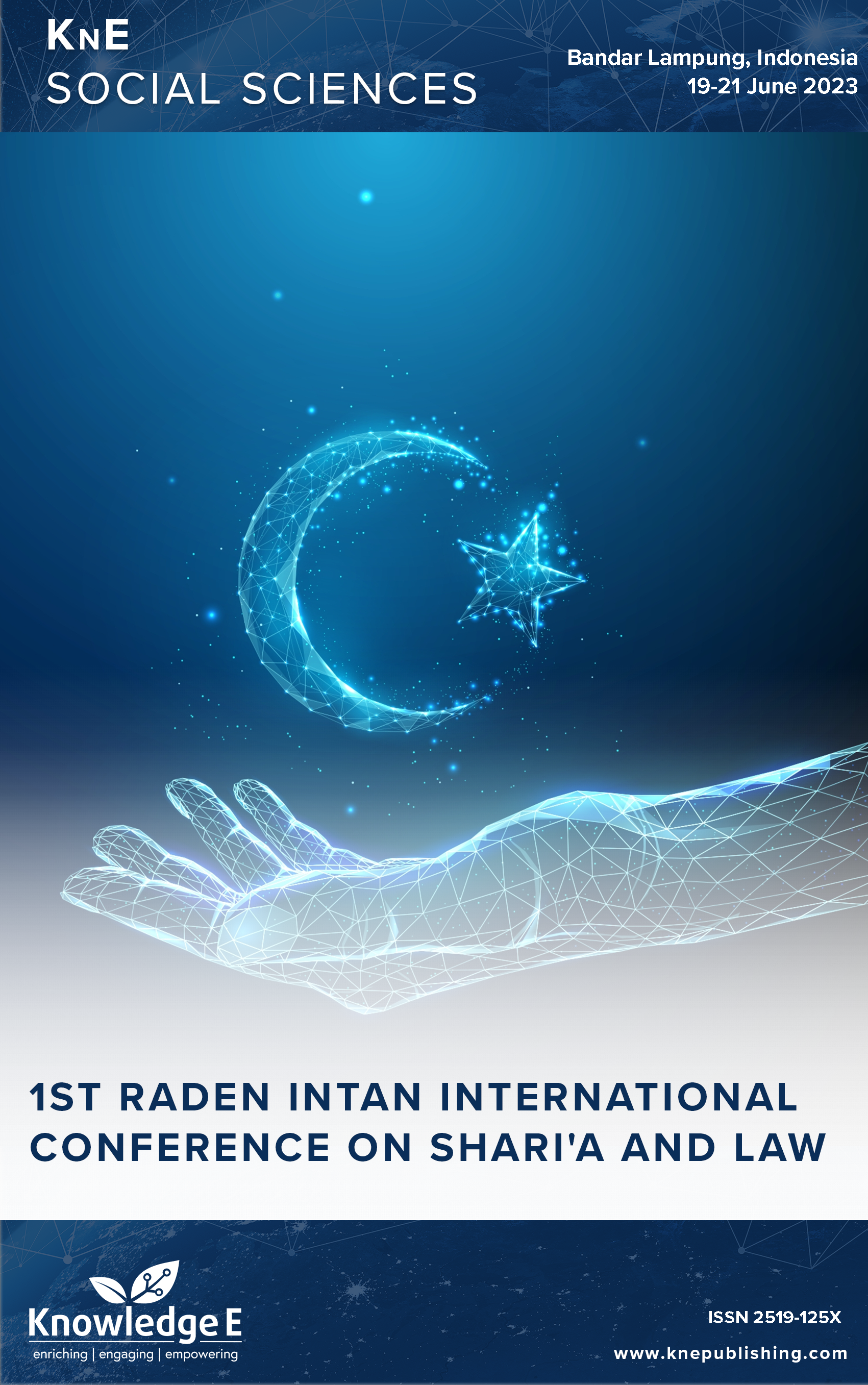Trends of Marriage in Religious Affairs Office in Society 5.0
DOI:
https://doi.org/10.18502/kss.v9i2.15014Abstract
Marriage is a bond between a man and a woman as husband and wife to form a happy and eternal family (household) based on Belief in One Almighty God. Lately, there has been an increasing trend for young couples choosing to get married only at the Office of Religious Affairs without holding a big reception or party. In this study, one of the two components of the method was applied, namely library research and field research. The study aimed to research and analyze the trend of getting married in the Office of Religious Affairs in Society 5.0. Also, this field research is to make observations about a phenomenon in a scientific situation to explain and prove situations and phenomena that are clearer about the conditions, so the type of approach used is qualitative. From the research results it is known that getting married at the Office of Religious Affairs is increasingly becoming an option for many couples because it is considered simple and free but still memorable. From there, the people of 5.0 also realized that the relatively large costs of holding a wedding party could be allocated for other purposes. Not a few who then think objectively that it turns out that marriage does not need to be expensive.
Keywords: marriage, Society 5.0, trend
References
Ah. Kholish Hayatuddin Desti Widiani, ‘Socio-Juridical Analysis on Polygamy Requirements in the Compilation of Islamic Law (KHI)’, Al-’Adalah, 19.1 (2022), 195– 222. https://doi.org/https://doi.org/10.24042/adalah.v19i1.10266 DOI: https://doi.org/10.24042/adalah.v19i1.10266
Hamzah Hasan and others, ’Problematics of Handling Marriage During the Covid-19 Pandemic from the Perspective of Islamic Law in the Office of Religious Affairs in Turatea District, Jeneponto Regency’, Qadauna: Scientific Journal of Islamic Family Law Students, 399–416.
Putra AP, Burhanusyihab A. ‘Normalization of Young Marriage Trends: Functional Structural Analysis and Maqashid Syariah’,Al-Manhaj. Journal of Indonesian Islamic Family Law. 2023;5(1):104–19. DOI: https://doi.org/10.19105/al-manhaj.v5i1.9725
Views of the Indonesian Society Regarding Marriage Issues in the Office of Religious Affairs. (February 8-12, 2023). https://jakpat.net/
Syamsul Darlis, ‘MARRIAGE FOR COVERING DISGRACE: The Practice of Kawi’ Pura Tradition in the East Kolaka Muslim Society’, Al-Ahwal: Journal of Islamic Family Law, 15.1 (2022), 21. https://doi.org/https://doi.org/10.14421/ahwal.2022.15102 DOI: https://doi.org/10.14421/ahwal.2022.15102
Alam S. Syariful Alam Reconstruction of Marriage Zonation in Islamic Law Perspective. Legality Scientific Journal of Law. 2019;27(2):161–76. DOI: https://doi.org/10.22219/jihl.v27i2.10154
Mohd. Idris Ramulyo, Marriage Law, Inheritance Law, Religious Court Procedure Law and Zakat according to Islamic Law. Jakarta: Sinar Graphics; 2002. p. 3.
Benny Krestian Heriawanto, ‘Interfaith Marriages Based on Positive Law in Indonesia and Private International Law Principles’, UNIFICATION: Journal of Law Science, 6.1 (2019), 94 <. https://doi.org/10.25134/unifikasi.v6i1.1571. DOI: https://doi.org/10.25134/unifikasi.v6i1.1571
A Saepudin, ’The Role of the Office of Religious Affairs (KUA) in Implementing Islamic Law in Indonesia’,Journal of Religious Training, Vol.10 No.October 2016 (2016), 390– 91.
Bakti SS. Control of Implementation of Marriage Services During the Covid-19 Pandemic; Study at the Regional Office of Jambi Province The Controlling of Marriage Services Implementation Office of Jambi Province. Journal of Islamic Community Guidance. 2021;14(1):186–212.
Ministry of Religion. Guidelines for Marriage Registrars (PPN). Jakarta: Ministry of Religion; 2004. pp. 21–4.
Syahri A; others. ‘Services for Implementing Marriage Contracts at the Medan Marelan Religious Affairs Office (Study of Their Effectiveness and Obstacles During the Covid-19 Pandemic)’,Al-Fikru. Scientific Journal. 2021;15(1):1–13. DOI: https://doi.org/10.51672/alfikru.v15i1.47

